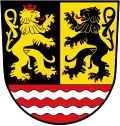Weira
Weira | |
|---|---|
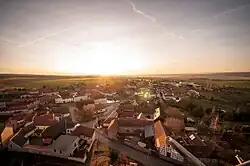 | |
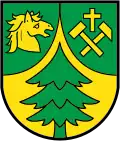 Coat of arms | |
Location of Weira within Saale-Orla-Kreis district 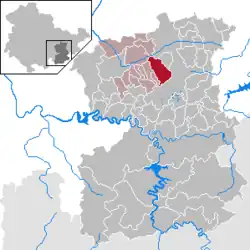 | |
 Weira 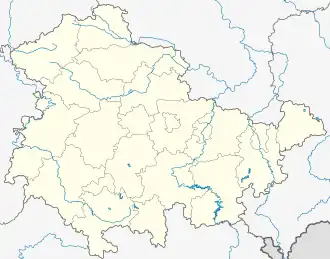 Weira | |
| Coordinates: 50°42′N 11°43′E / 50.700°N 11.717°E | |
| Country | Germany |
| State | Thuringia |
| District | Saale-Orla-Kreis |
| Municipal assoc. | Oppurg |
| Government | |
| • Mayor (2022–28) | Steffen Rogalla[1] |
| Area | |
• Total | 14.83 km2 (5.73 sq mi) |
| Elevation | 390 m (1,280 ft) |
| Population (2024-12-31)[2] | |
• Total | 373 |
| • Density | 25/km2 (65/sq mi) |
| Time zone | UTC+01:00 (CET) |
| • Summer (DST) | UTC+02:00 (CEST) |
| Postal codes | 07806 |
| Dialling codes | 036481 |
| Vehicle registration | SOK |
Weira is a municipality in the district Saale-Orla-Kreis, in Thuringia, Germany.
Weira was the birthplace of Richard Müller the socialist and industrial unionist active in the German Revolution of 1918.[3]: 11–12
References
- ^ Gewählte Bürgermeister - aktuelle Landesübersicht, Freistaat Thüringen, accessed 10 November 2022.
- ^ "Bevölkerung der Gemeinden vom Thüringer Landesamt für Statistik" (in German). Thüringer Landesamt für Statistik.
- ^ Hoffrogge, Rolf (2014). Working-Class Politics in the German Revolution, Richard Müller, the Revolutionary Shop Stewards and the Origins of the Council Movement. Chicago: Haymarket. ISBN 9781608465507.
External links
 Media related to Weira at Wikimedia Commons
Media related to Weira at Wikimedia Commons
